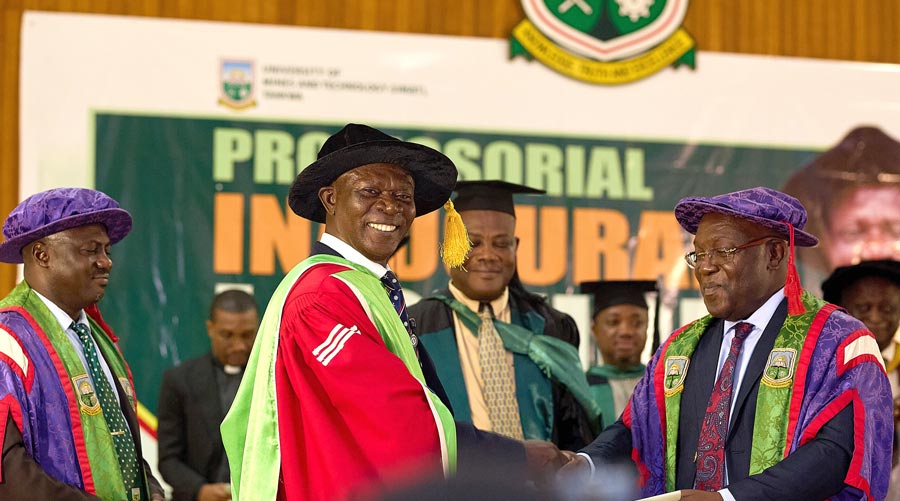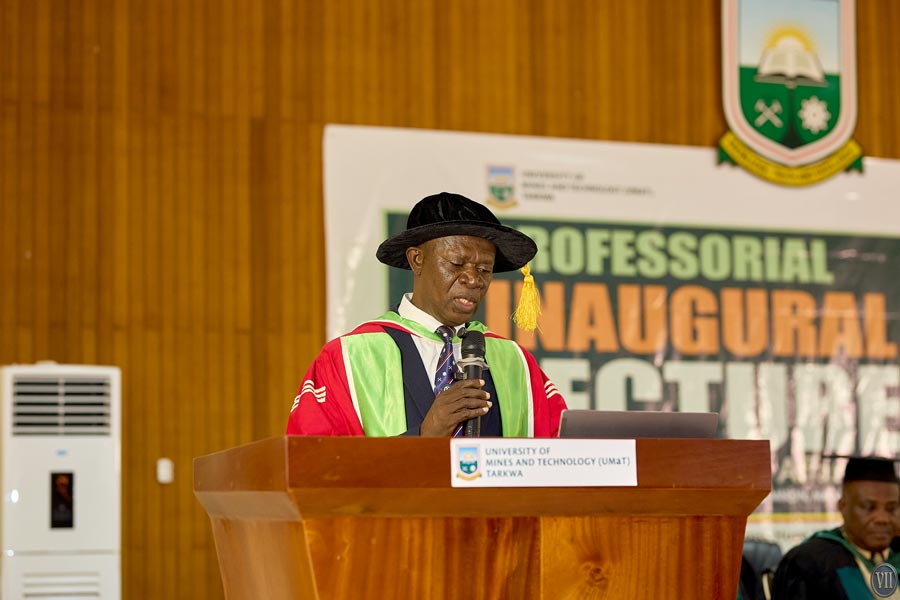Professor Michael Affam, a renowned Geological Engineer and Dean of the Office of Research, Innovation and Consultancy (ORIC) at the University of Mines and Technology (UMaT), has called for urgent adoption of sustainable alternatives to natural sand, presenting ore sand derived from mine waste as a viable substitute.
He made this call during his inaugural lecture held on Thursday, 14th August 2025 titled “Ore Sand: Critical Circular Solution to Address Huge Mine Waste Challenges and Fine Aggregate Scarcity”.
In his presentation, Prof. Affam explained that sand, after water, is the world’s second most exploited natural resource. Its extensive use for roads, buildings, bridges, and other infrastructure has driven soaring demand and mounting environmental pressures. Citing the United Nations Environment Programme (UNEP), he noted that global sand consumption has tripled over the past two decades to nearly 50 billion tonnes annually. In Ghana, he added, the depletion of beaches and riverbanks through illegal sand mining has deepened scarcity, damaged ecosystems, and threatened food security.
Against this backdrop, his research advocates the transformation of mine waste into construction-grade sand. He revealed that Ghana’s more than 13 large-scale mines generate billions of tonnes of waste ore annually, much of which occupies arable land. At Ajopa, within the Anglogold Ashanti Iduapriem Mine concession, for instance, a stockpile of over 100 million tonnes has been identified as a potential source of ore sand.
Laboratory analysis by his research shows that this quarzitic waste rock is rich in silica (65–90%), with compressive strength between 80–95 MPa, specific gravity of 2.68, and fineness modulus of 2.7 which are properties that meet international standards for fine aggregates. X-ray fluorescence tests further revealed 66% SiO₂, neutral pH, and no harmful sulphates, confirming the material’s suitability for construction.
Prof. Affam highlighted that ore sand could be applied in road construction, block moulding, concrete works, and pavement block production. Beyond its technical suitability, he emphasised its wider environmental and socio-economic benefits, including reducing pressure on natural sand sources, restoring degraded lands, and creating jobs in mining communities.
Describing ore sand as an example of a circular economy solution, he underscored the importance of reusing waste resources to create value to minimise environmental impact. “Ore sand is not waste, it is idle gold,” he declared, urging policymakers, industry stakeholders, and researchers to harness this underutilised resource.
Prof Affam reflected on his academic and professional journey, and expressed gratitude to God, his late father, his family, mentors, colleagues, and research his team for their continuous support. He dedicated the lecture to his father, Mr Yaw Affam, who made personal sacrifices to ensure his education. He also acknowledged his church, friends, and the University community for their role in shaping his life and career.
The inaugural lecture was chaired by the Vice Chancellor, Professor Richard Kwasi Amankwah.












